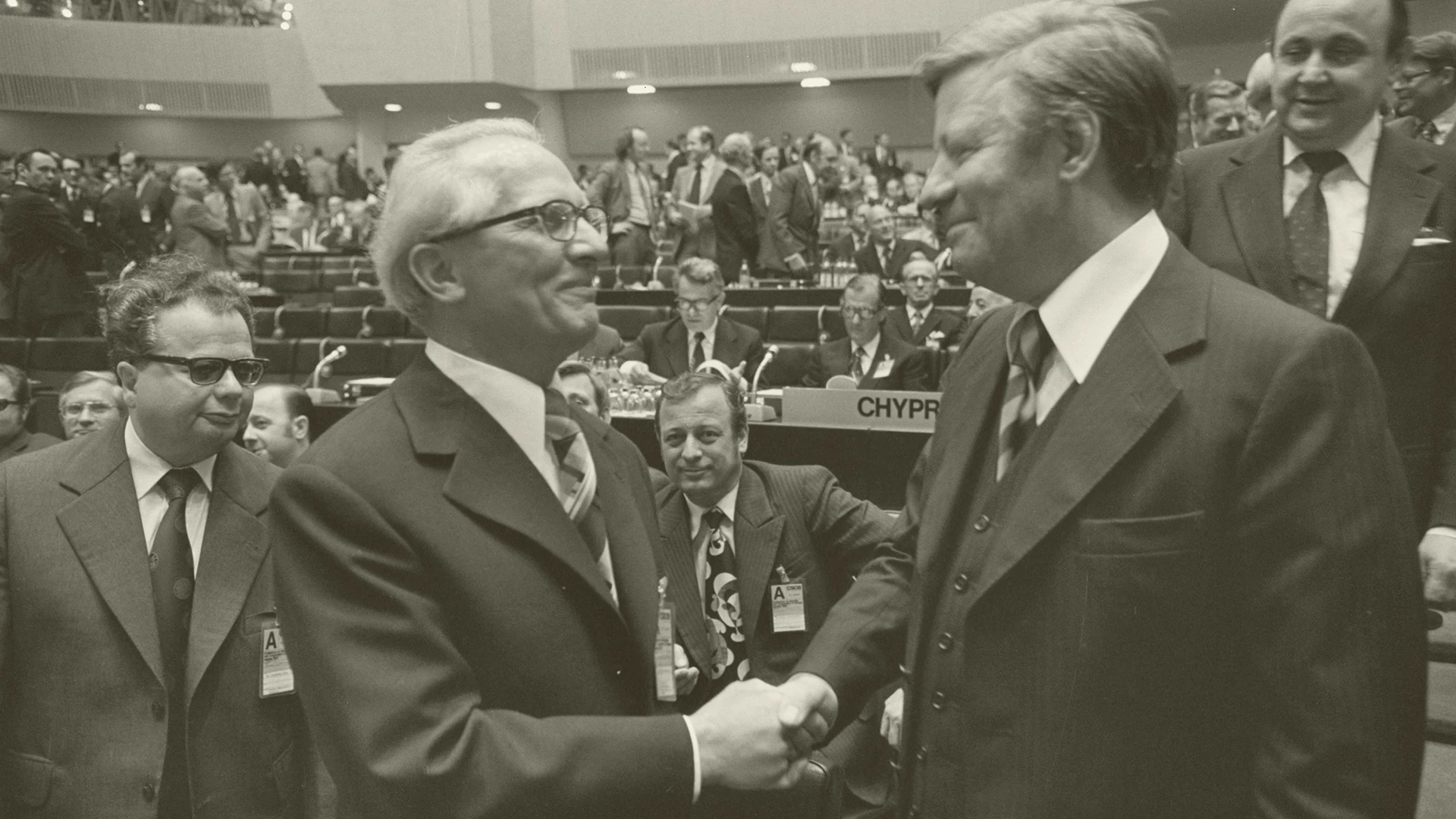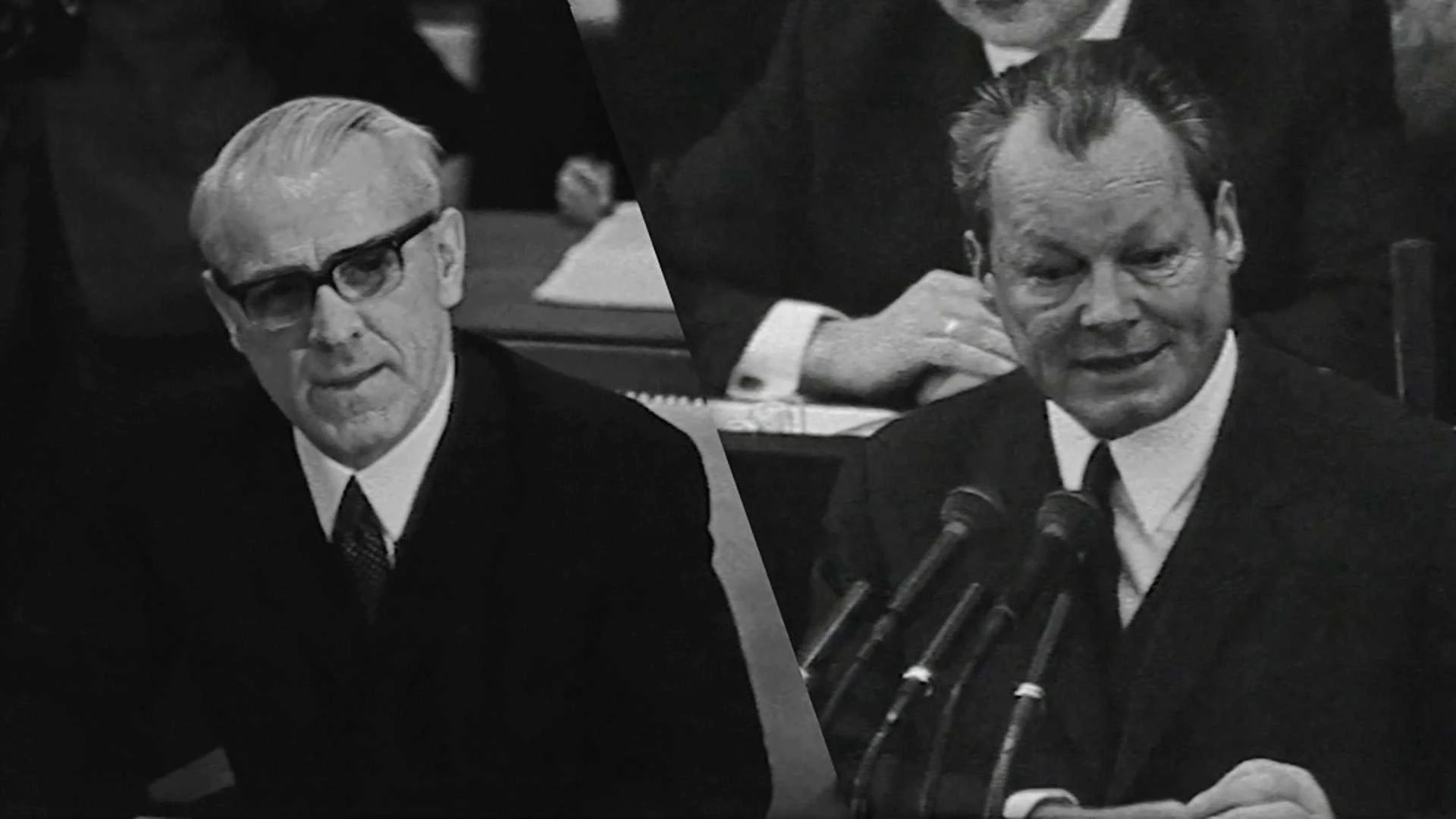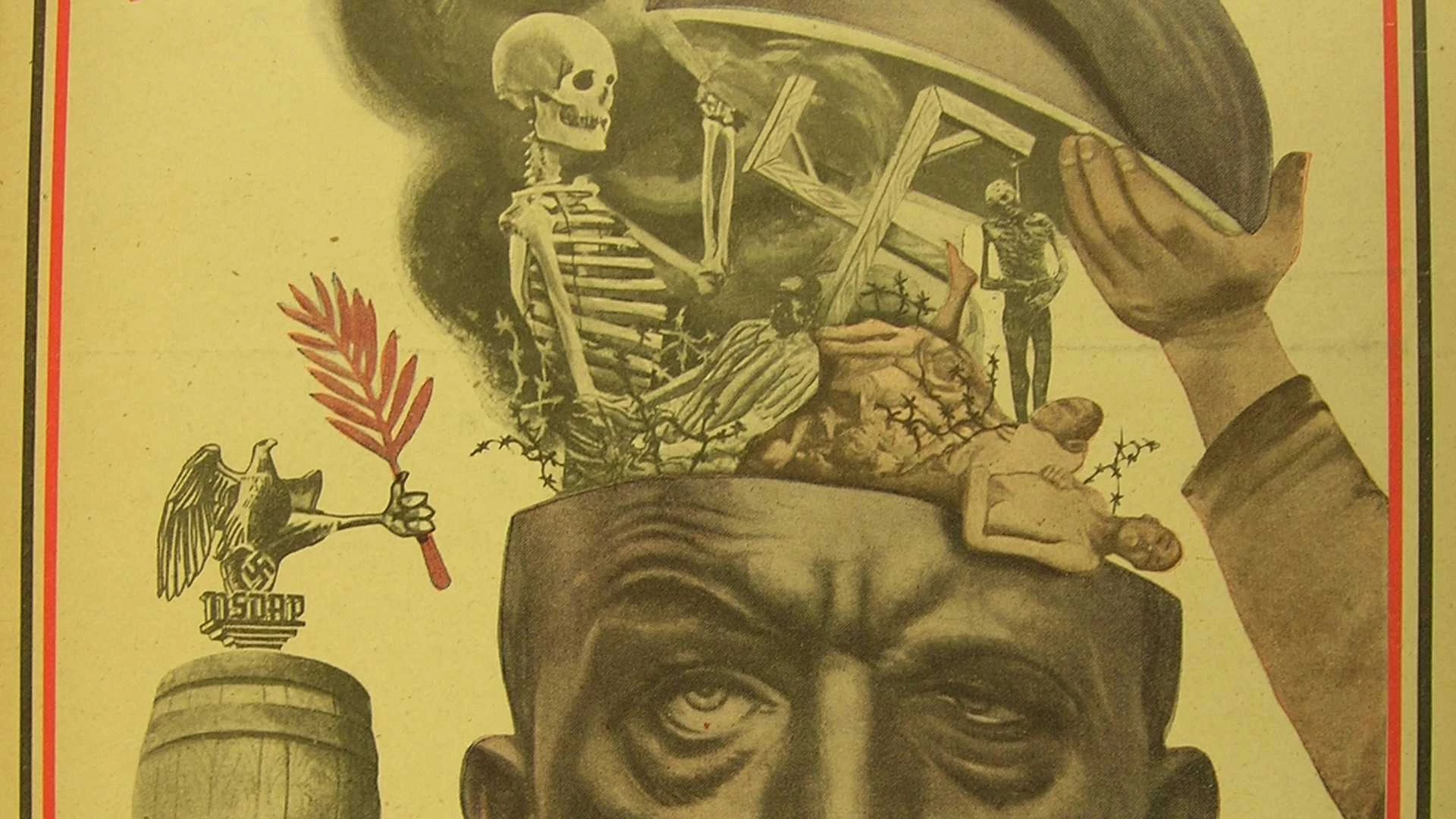20. Jahrhundert: 1945 bis heute | Geteiltes Deutschland 1969-1989
Intra-German Encounters
From 1969 onwards, Chancellor Willy Brandt stands for a democratic awakening in West German domestic and foreign policy. He calls for reconciliation with the East and better relations between the two German states. "Change through rapprochement" is his political concept, which he underpins with a series of treaties with the East. With his "policy of small steps", Brandt succeeds in easing the lives of the people in the divided country and bringing the Germans closer together. In the 1980s, Soviet President Mikhail Gorbachev, of all people, breathes new life into the intra-German relations. His policy of more transparency (glasnost) and transformation (perestroika) leads many GDR citizens to demand changes and reforms in their own country – and he brings progress to the German question. | In this film version, German interviews and historical or literary quotes remain untranslated.
mehr
weniger
GDR, Democratic Republic, Erfurt, Willy Brandt, Willi Stoph, FRG, Federal Republic, formal recognition of the GDR, Transit Agreement, expellees, Oder-Neiße Border, Oder-Neiße Line, Treaty on the Fundamentals of Relations, Cold War, Berlin, Soviet Union, Russia, Michail Gorbachev, SED’s 11th Party Day, Erich Honecker, Helmut Kohl, state visit, state reception, East, parade, historical victor, West, Brandenburg Gate, division of the city, Ronald Reagan
Geeignet für die Fächer:
Geschichte
Empfehlung der Medienbegutachtung Baden-Württemberg für den Geschichtsunterricht


